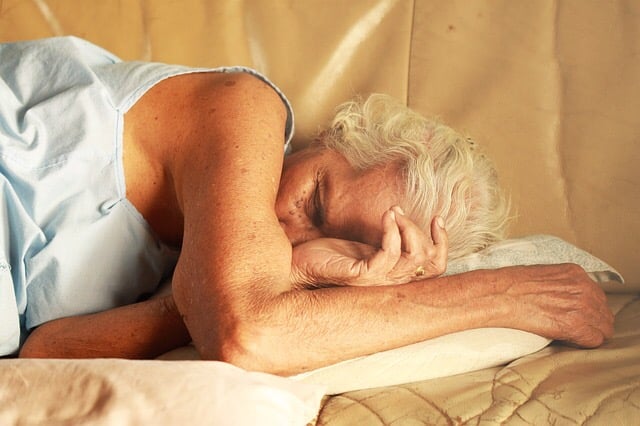We all have those nights where we are restless. Insomnia is a common problem that affects many people, taking its toll on your energy and mood. Seniors need an average of seven to nine hours of sleep each night. It is often a myth that as one gets older, their need to sleep lessens. Many seniors get much less sleep than they need for numerous reasons.
What is insomnia?
Insomnia is the inability to fall or stay asleep at night. The result is non-restorative and unrefreshing sleep. Insomnia is defined by the quality of your sleep and how you feel after sleeping. You could be experiencing insomnia if you feel fatigued or drowsy during the day, despite sleeping many hours at night. Insomnia is often a symptom of another problem and not a sleeping disorder. Seniors could have an underlying medical condition or have a side effect of medication if they are struggling with restful sleep.
Insomnia Symptoms:
– Difficulty focusing attention throughout the day
– Waking up too early in the morning
– Not feeling fresh after sleeping at night
– Trouble going back to sleep when awakened
– Waking up frequently during the night
– Irritable, fatigue and drowsy during the day
Why Can’t You Sleep?
You will need to figure out what is causing you to not sleep properly in order to treat and cure your insomnia. Depression, stress, and anxiety can impact sleep. Physical health and habits throughout the day can also influence this. Many medical problems or illness can contribute to insomnia. Allergies, asthma, thyroid issues, cancer, acid reflux, and chronic pain are other causes of insomnia. Insomnia can often be a symptom of another sleep disorder, such as sleep apnea, restless leg syndrome, and circadian rhythm disturbances.
What are your daily habits? Some things you may do during the day may be negatively influencing your insomnia. Alcohol or sleeping pills used to fall asleep will often disrupt sleep over long-term use. Napping, eating sugary foods, eating heavy meals close to bedtime, drinking too much caffeine during the day, or not getting enough exercise can influence your ability to sleep properly. It can often become a vicious cycle of unrefreshing sleep when these habits are not corrected.
Fight the Insomnia
Create a quiet, dark, and cool environment for sleeping. An uncomfortable mattress of pillow can interfere with sleep. Using a sound machine or ear plugs to drown out noise can help. Invest in blackout curtains or an eye mask to block out light. Keep your room cool with a fan.
Go to bed at the same time every night. Establish a routine in going to bed and waking up each day. When you have a schedule, it will help you get in a regular sleep rhythm. Electronic screens emit a blue light that disrupts your body’s productions of melatonin. Melatonin is a hormone your body produces at night to help regulate sleep cycles. Reading a book or listening to soft music is a better alternative than watching TV or spending time on your phone.
Try not to stress over your inability of sleeping or falling back to sleep if you wake up throughout the night. If you are awake for more than 20 minutes, get out of bed and do something non-stimulating, such as reading a book. Avoid screens and keep the lights dim.
Most people with insomnia can make simple changes without relying on specialists or turning to medication for sleeping. It is always important to speak with your doctor if you have trouble sleeping or feel tired throughout the day. It is important to talk with them and decide on a treatment for your insomnia.

